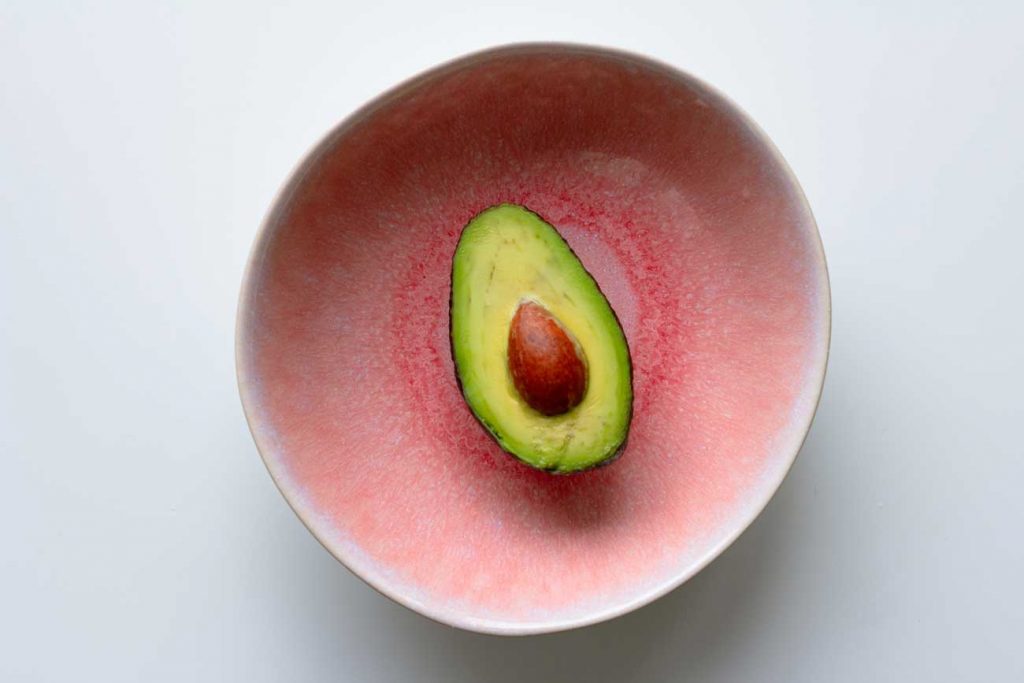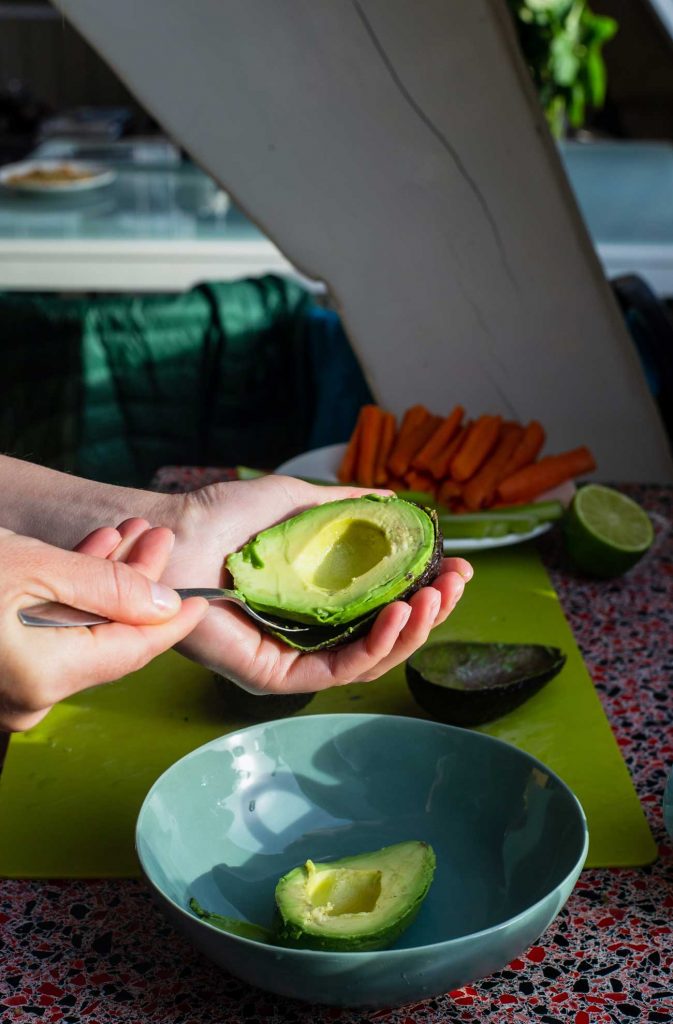Table of Contents
In recent years, the keto diet has become an increasingly popular method around the globe for weight loss and improving one’s health. Let’s talk about a list of keto foods you can eat.
Numerous studies that have been done recently demonstrate that prescribing to this low-carb, high-fat diet helps promote fat loss and even improve health conditions such as type-2 diabetes and cognitive decline.
A ketogenic diet, also known as a keto diet, is one that includes low-carb and high-fat diet and moderate proteins, which reduces the carbohydrate intake and increases the fat content in the diet. When following a ketogenic diet, carbs are normally reduced or replaced with fats which will account for about 75% of your calorie intake. Proteins, on the other hand, will account for around 20% of energy needs, while carbs remain at 5%. The reduction in carbs forces your body to depend on fats as its main source energy instead of glucose.
The result is a metabolic state known as ketosis, which allows your body to convert fat into energy in a more efficient manner. The fat is turned into ketones and reduces the blood sugar and insulin levels massively, which has numerous health benefits for your body.
A keto diet can help you with your weight loss if followed faithfully without having to starve yourself and can prevent diseases like Alzheimer’s, diabetes, cancer, and epilepsy. Most fruits and vegetables contain high volumes of carbs and it’s for this reason that they taste sweet. They have been termed as being nature’s candy by some health specialists. It would be wise to replace these sugar-rich fruits and vegetables with low carb, high-fat ones in your diet.
When it comes to vegetables, one should steer clear of starchy and carbohydrate-dense foods that might derail your keto diet. It is advisable to go for a ketogenic diet that is both high in nutrients and low in carbohydrates. You can never go wrong with vegetables that are dark and leafy, and these will be your spinach or kale which will be the best vegetable to add to dishes/meals.
Here are some recommendations for vegetables, fruits, and nuts with low-carb to include in the ketogenic diet that will have great health benefits to you.
Fruits To Include In Your Ketogenic Diet
- Avocado
Avocado is arguably the most consumed fruit known to date. According to USDA (US Department of Agriculture), 100g of avocado has an equivalent of 6.7g of fiber and 8.53g of carbohydrates. Avocados are a unique fruit in that they are immune-boosting food due to their potent antioxidants, namely glutathione, fiber, and good fats. They are high in fiber, high in fats, and low in carbs. It is a good way to add healthy fats which are good for your heart and body metabolism. Also, avocados are a rich source of nutrients which include Vitamin B5, Vitamin B6, Vitamin E, Vitamin K, Vitamin C, folate, and potassium.
Avocados have a great taste and can be served as slices on food. One can also make a tomato salad served as a guacamole paste or even serve them with boiled eggs as well.
- Watermelon
One would hesitate to add this fruit to their keto diet fearing that it might have a lot of sugar. Worry not. Watermelon can be used to quench your thirst as well as satisfy your sweet tooth craving without compromising on the keto diet.
Watermelon, compared with other fruits, is relatively low in carbs, which is 7.55g in 100g of fruit, and can be comfortably included as part of a ketogenic diet. Watermelon packs numerous antioxidants, such as lycopene which reduces cell damage and promotes a healthy heart, and has been associated with reducing certain cancers in individuals.
Moreover, watermelons are rich in nutrients and minerals such as Vitamin C and A, potassium, and copper.
- Berries
Not all berries can fit into your keto diet. Unlike blueberries, raspberries, blackberries, and strawberries have relatively low-carbs content and are high in fiber. Berries are generally well-known for being antioxidants, which may help fight inflammation and protect from free radical damage. Also, there are studies associating berries to lower cholesterol levels and reduced heart disease complications.
In particular, Raspberries are rich in polyphenol, which helps reduce blood pressure and also prevent the buildup of plaque in the arteries. According to a Nutrition Reviews’ article published in March 2010, raspberries also contain flavonoids which are powerful antioxidants that help reduce your blood pressure and also promote healthier arteries, consequently lowering the risk of heart disease. A serving of 100g of raw raspberries contains about 3.3g of net carbs, 4g of fiber, and 2.7g of sugar. Raspberries also contain Vitamin C.
Like raspberries, blackberries are fibrous and have been used for many years due to their sweetness and medicinal benefits. Blackberries can make a great addition to your keto meal plan and you can choose to whip them into a recipe or snack on a handful of them raw. Blackberries are generally low in net carbs, with just 3.1g, 3.8g of fiber, and 3.5g of sugar. They are also packed with vitamins and minerals such as Vitamin C, K, and manganese which have been associated with improved cognitive and motor functions, healthy skin, and reduced inflammations.
Strawberries are sweet and delicious and can be comfortably added to your keto diet. A single serving of sliced strawberries holds about 4.7g of net carbs and 4.1g of sugar. They are rich in antioxidants such as anthocyanins, ellagic acid, and procyanidins which have numerous health benefits.
Examples of these benefits include improved blood sugar levels, reduced insulin levels, as well as increased insulin sensitivity. Strawberries have been found to have profound effects on those with type-2 diabetes and insulin resistance.
- Tomatoes
Although some people might consider tomatoes to be a vegetable, actually it is a fruit. According to the United States Department of Agriculture (USDA), tomatoes have 4g of carbs and 2g of sugar per half-cup serving. Tomatoes are low in sugar, have fiber, and, more importantly, have phytonutrients.
However, this may differ from the type of tomato you’re using. Grape tomatoes contain 3g of carbs, while cherry tomatoes have 6g of carbs and 4g of sugar respectively. One can enjoy them raw with salt and pepper as an easy, healthy snack, like salads or sandwiches toppings, or cooked into soups or make sauces.
- Peaches
Known as being sweet and juicy, peaches are significantly low in carbohydrates with 9.54g of carbs and 1.5g of fiber for every 100g of fruit.
You can fit peaches into a healthy keto diet by regularly eating peaches along with other fruits and vegetables high in flavonoids and stilbene which has been linked to improved triglyceride and cholesterol levels, both of which are associated with heart disease.
This fruit also offers a host of other nutrients and minerals, including vitamin C, vitamin A, potassium, zinc, iron, and niacin. Peaches can be served up with some cottage cheese for a low-carb diet.
- Starfruit
Not very many people would consider adding the starfruit to their keto diet but it is a great alternative if you’re looking to satisfy your sweet tooth. The starfruit is also known as carambola.
This fruit with a distinct shape to it offers a sweet and sour flavor with only 4g of carbs per 100g of fruit. The starfruit is good for those on a strict ketogenic due to its low carb and rich fiber content, and it is jam-packed with Vitamin C, copper, potassium, and pantothenic acid.
- Cantaloupe
Cantaloupe, which is closely associated with some varieties of melon, such as watermelon and honeydew, can be included in a well-planned keto diet. They are delicious and refreshing, and eating them allows you to stay full longer.
A cantaloupe is significantly low in net carbs with a single wedge of the fruit containing only 7g of net carbs. Also, cantaloupes provide a rich dose of folate, potassium, and vitamin K and it’s also a source of beta carotene which improves immune function and eye health. This makes it a great fruit salad staple.
- Honeydew
This light green melon fruit packs 9.09g of carbs and 0.8g of fiber for every 100g. Honeydew is a rich source of Vitamin C as well as potassium which is vital for maintaining blood pressure, PH-balance, and also healthy metabolism.
- Lemons
Lemons can be added to drinking water since they are also keto-friendly. Packing 5.5g of carbs and 1.5g of fiber, lemons are a great addition to your keto diet. Lemons are popularly used to flavor drinks, meals, and desserts. Found in lemons is a particular fiber known as pectin, which can help stabilize blood sugar levels, fight off inflammation, and slow down the growth of cancer cells. Besides, lemons are rich in vitamin C, potassium, and vitamin B6.
Salads And Vegetables To Have In Your Ketogenic Diet
- Broccoli
Also known as a superfood, broccoli has many health benefits. A serving of 91g of raw broccoli houses 6g of carbs and 2g of fiber. Broccoli may also help to decrease insulin resistance in type-2 diabetics and it’s also thought to protect against several types of cancer, including prostate cancer.
Broccoli is non-starchy and can serve as a replacement for rice, potatoes, and pasta in various dishes. It can be served raw in salads or steamed, fried, or baked and you don’t need to worry jeopardizing your keto status.
- Lettuce
It has the lowest carb concentration of the vegetables known. A serving of 47g if lettuce contains 2g of carbs and 1g of fiber making it an ideal choice for your keto diet. Romaine and other dark-green varieties of lettuce are a rich source of vitamins A, C and K. Also found in lettuce is folate which reduces the risk of heart disease by decreasing the levels of homocysteine in your body.
- Spinach
Spinach is low in carbs, but once cooked the carbs become more concentrated. Jut to give an example, a cup of cooked spinach holds 7g of carbs and 4g of fiber, whereas a cup of raw spinach contains 1g of carbs and almost 1g of fiber.
Spinach can also help reduce damage to DNA, protects heart health, and may even decrease the risk of eye diseases such as cataracts and macular degeneration. It is also a rich source of Vitamin K and other minerals.
- Cauliflower
This is arguably the most widely used and popularized low carb vegetable. Due to its mild taste and white color, cauliflower can be substituted for potatoes, rice, pasta, and other higher-carb foods. A serving of one cup which is equivalent to 100g of raw cauliflower contains 5g of carbs and 3g of fiber. Another benefit of cauliflower is that it is high in vitamin K and vitamin C, and may help prevent heart disease and cancer.
- Cabbage
Cabbages have some unique health benefits and are packed with 2g of digestible carbs per serving. It’s rich in vitamins C and K and has been known to minimize the risk of certain cancers, including esophageal and stomach cancer.
Cabbages are also known for containing Vitamins C and K. Cabbages can be prepared by shredding the cabbage, adding salt and lemon juice, then adding mayonnaise, mustard, and spices to satisfy your keto diet.
- Kale
Kale is an awesome option when it comes to low-carb vegetables. Some people prefer to blend their kale into juice while others prefer to have it as a salad. Kale is a better source of Vitamin A, C, and B6 when compared to spinach.
Kale has powerful antioxidants such as Quercetin and Kaempferol which in turn help to lower the blood pressure, reduce inflammation, and also depression. It also helps in controlling symptoms of cough and cold. Also, kale is an excellent source of calcium and copper.
- Asparagus
Asparagus is an excellent low-carb vegetable which is normally can go with almost any dish. A serving of 180g of cooked asparagus will give you 8g of carbs and 4g of fiber and is also a great source of vitamins A, C, and K. Asparagus can be grilled, chopped or stir-fried or slow-cooked into stews.
- Bell Pepper
Adding bell crunchy pepper to your keto diet will not only give you the much-needed vitamins but it will satisfy your desire for the carb. Bell peppers come in red, yellow, or orange colors making them a colorful and sweet addition to your keto diet. According to the USDA, a cup of chopped bell peppers will give you 4.0g of carbs and 1.3g of proteins. Bell peppers are also a good source of Vitamin C and potassium.
- Zucchini
Zucchini is low in carbs, has a sweet, mild taste that’s easily likable, and is also versatile. It is easily used as a replacement for noodles. Zucchini carb count is 3g of digestible net carb in a single cup. They are also a good source of Vitamin C.
- Celery
Celery, due to its watery characteristic is a great way to prevent dehydration associated with keto diets. It has extremely small amounts of digestible carbs equivalent to 3g of carbs and 2g of fiber in a serving of 100g cup. Celery is a source of Vitamin K and also has luteolin, which is known to have anti-cancer properties.
Nuts To Add To Your Ketogenic Diet
When looking for nuts to go with your keto diet, this might be a tricky venture since some nuts have high levels of carbs. While it’s good to avoid most nuts when you’re on the keto diet, there are a few nuts that have high levels of fat and low on carbs that make them a good choice for your diet. Here are a few of them that you might want to look at when considering nuts for your keto diet.
- Pecans
Pecans are a great addition for anyone looking to have nuts in their keto diet. One can comfortably stock up on pecans since they hold the most fat with the fewest carbs of all the nuts. An ounce of pecans, which is equivalent to 19 halves, will contain about 4g of carbs.
- Macadamia Nuts
Macadamia nuts have the lowest level of carbs in the nut family. This makes them ideal for you to include them in your keto diet. A quarter of a cup will give you about 4g of carb which, in moderation, is a great addition to the overall diet.
- Brazilian Nuts
The fat to carb ration in Brazilian nuts will not hurt your keto diet in the slightest. Half a cup of these nuts will give you about 4g of carbs making them ideal for your diet.
- Pine Nuts
An ounce of pine nuts will contain about 4g of carbs and 1g of sugar. While they’re a good source of carbs, doctors recommend taking them sparingly.
- Peanuts
Doctors estimate that 33 peanuts will give you about 6g of carbs when done in moderation will not torpedo your keto diet.
- Hazelnuts
An ounce of hazelnuts, which is the equivalent of about 12 hazelnuts, will give you about 6.5g of carbs.
Other things you can eat on a keto diet
One might be asking, can I have eggs, milk, or coffee in my keto diet? To answer that question, one needs to understand that on a keto diet, the net carb intake should be reduced to 25g to 30g per day.
That said, when it comes to eggs, one could employ what is called an egg fast. An egg fast is a restricted ketogenic diet where foods that are high in fat, moderate in proteins, and low in carbs. This type of diet helps your body initiate the metabolic state of ketosis in which your body begins to use ketones for energy instead of glucose.
The main purpose of the egg fast is to help you go through the weight loss plateaus where weight loss might have stalled. Typically, an egg fast will usually last between three to five days. The egg fast is particularly discouraged for people with certain medical conditions like eating disorders, diabetes, cholesterol hyper-responders, and those without a gallbladder.
When it comes to milk, although some kinds of milk cannot be used for a keto diet, various brands are compatible and can be used. For milk to be keto-usable, it should be low in net carbs. Some of these kinds of milk include almond milk, soy milk, coconut milk, half and half, just to list a few. Types of milk to avoid include cow milk, goat milk, rice milk, et cetera.
In the case of keto coffee, weight loss is achieved by suppressing appetite. Keto coffee is hailed for its instant energy-boosting properties. The ketogenic coffee follows the rule of the ketogenic diet by emphasizing on the intake of low-carb, high-fat foods. The coffee is prepared with the addition of healthy fats in the form of grass-fed butter and medium-chain triglyceride (MCT) coconut oil.
The MCT helps dieters to feel full and satiated for longer periods of time, which prevents overeating throughout the day. However, doctors caution against having too much keto coffee since this might have the opposite effects.
Lastly, I would also like to point out that drinking water is an essential part of dieting. A common side effect of the ketogenic diet is dehydration. This is because water and sodium are held by carbohydrates in your body. This means that with restricted carbs you retain less water
In conclusion, the ketogenic diet will only yield the desired results if the dieter watches and pays attention to what they eat keenly by keeping a close eye on the amounts of carb intake, protein intake, and sugar intake. I strongly believe that the keto diet is an amazing alternative for people looking to shed some weight off of their body without having to turn to drastic measures such as enrolling in a gym or starving oneself.
I would encourage anyone looking for an alternative to weight loss to try the ketogenic diet and see the results for themselves. Also, a keto diet will improve your health dramatically and significantly reduce the chances of diseases as discussed above. This will lead you to live a healthy and fulfilled life in the long run.
Source: Havard.edu



